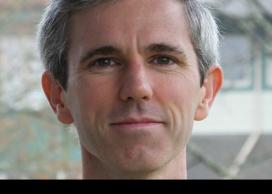Research in focus: Christopher Rea
Learn more about the work of our researchers at UBC

August 22, 2022
Name:
Christopher Rea
My pronouns:
he/him
Title:
Professor
Department/Unit:
Department of Asian Studies
Location:
Vancouver
Year I started working at UBC:
2008
Provide an overview of your research in 75 words or less:
My co-authored book “Where Research Begins: Choosing a Research Project That Matters to You (and the World)” (2022) is a guidebook focused on the decisions researchers face when starting a new project. How do I turn a topic of interest into a set of questions? How to distinguish between productive and unproductive uncertainty? What do I need to figure out for myself before I engage with “the literature”? Such scenarios cross fields and disciplines.
What first motivated you (or motivates you) to conduct your research?
The motivations are personal and professional. I aspire to a research practice that is confident, grounded, vulnerable, transparent, and public-spirited. I’ve also seen the consequences of failure—the student whose project never gets off the ground; the colleague whose fear of criticism leads them to grandstand or adopt a defensive posture. We all need to make better use of time and resources. The book distills advice, and encourages readers to pay it forward.
What do you hope will change as a result of this research?
I would like to see research become more egalitarian, and more accessible to people who might feel like they are not qualified because they lack credentials or experience. Fields and disciplines are often organized by topics, which can lead to static modes of thinking. I would like researchers to think more flexibly about research, and be able to communicate beyond their own fields better, not least by asking “What does the world call my problem?”
Are there any research collaborators you'd like to acknowledge and why?
Thomas S. Mullaney, my co-author and a professor of history at Stanford. Our collaboration goes back to graduate school when we first taught research methodology. We designed a syllabus together but taught separate sections and compared notes weekly. The difficulties we experienced in trying to help a group of bright individuals envision a research project they truly cared about stayed with us for two decades, and eventually resulted in this book.
What have you learned during your research that has surprised you the most?
Students and educators keep making the same mistakes. Trying to make a research topic workable by “narrowing it down.” (Result: still stuck in TopicLand!) Or jumping to “THE question,” instead of asking many questions and then identifying the underlying problem. Or proposing a “thesis” from the get-go. Or—I’ve done this myself—trying to disabuse a novice researcher of their naïve assumptions, instead of treating those assumptions as productive energy to be harnessed.
Learn more:
- Our people
- Research
- Research in focus






